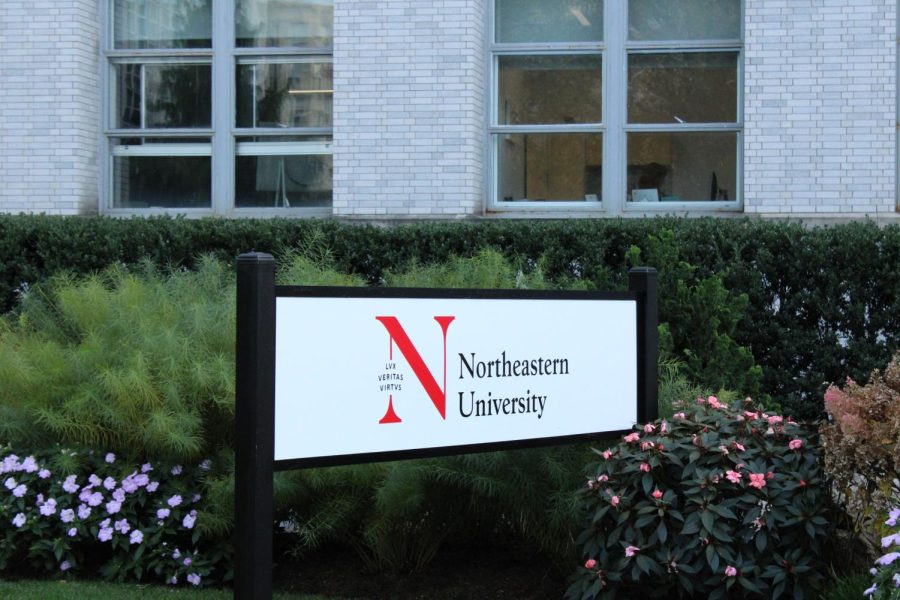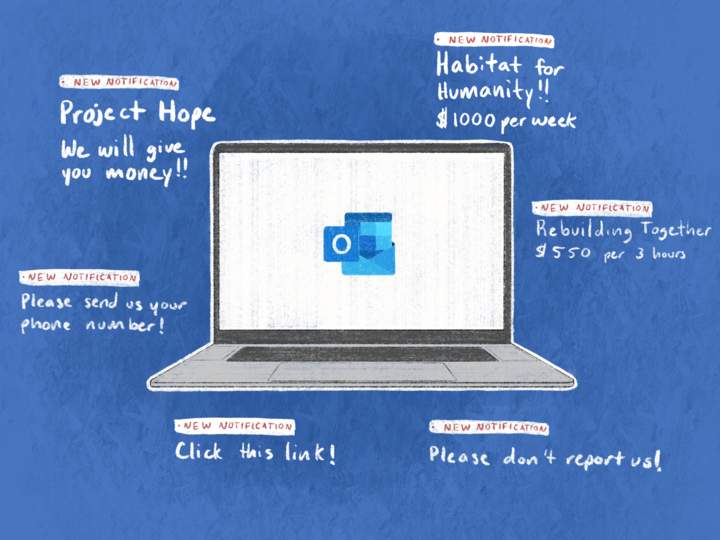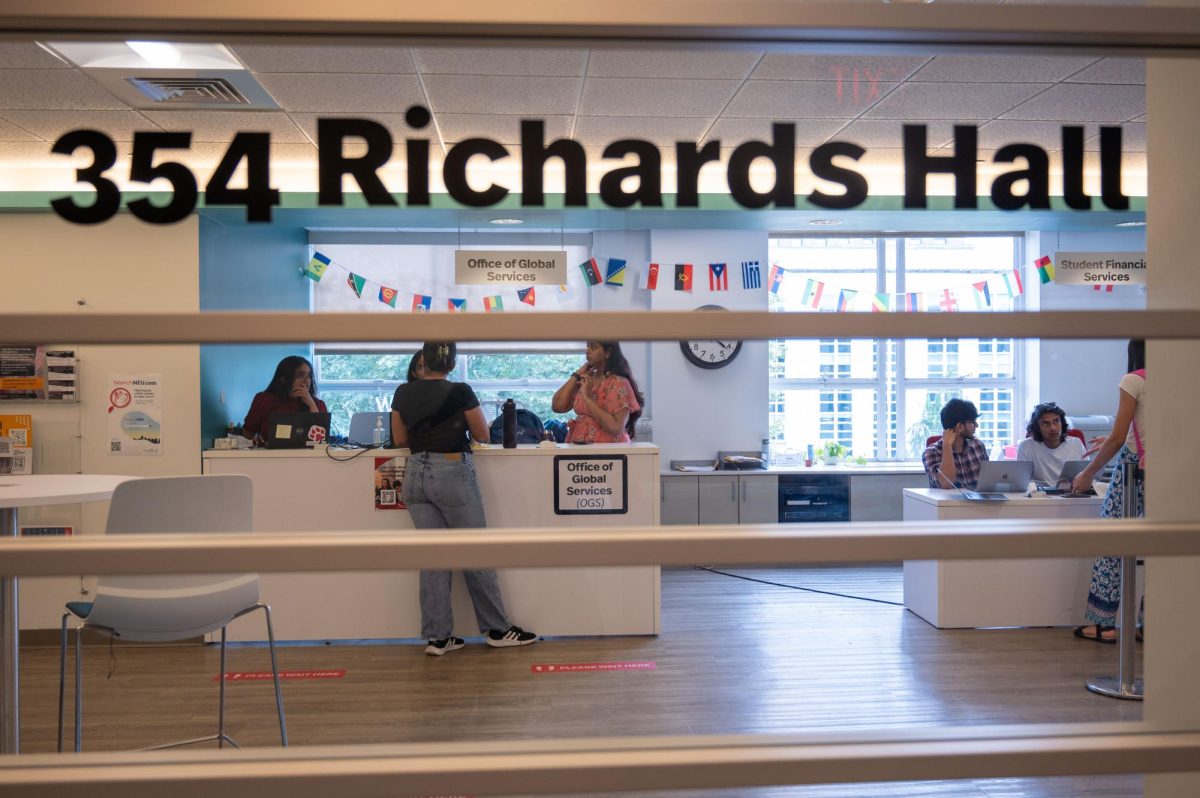‘The university has to stop protecting itself and start protecting its students’: Sexual violence training lags at Northeastern, SpeakOut elevates allegations of sexual assault in Greek life
May 5, 2023
Editor’s Note: This article discusses sexual assault. Northeastern offers the following sexual violence prevention resources for students.
OPEN provides confidential sexual violence support services to Northeastern students.
OPEN’s Sexual Violence Resource Center provides trauma-informed services to Northeastern students who have experienced any form of sexual violence. The SVRC staff work with students to understand their rights and resources and support survivors in making the best choices for them going forward.
OPEN also offers Confidential Resource Advisor Services for students accused of sexual violence and Community Consultation Services for those looking to support other students impacted by sexual violence.
To set up a meeting, students can fill out a confidential service request form.
Across the country, discussions of sexual violence on college campuses have zeroed in on Greek life — and Northeastern is no exception. Social media accounts like Northeastern SpeakOut have gained notoriety for highlighting a culture of sexual assault within fraternities that university officials say they aim to combat through sexual violence education.
But almost 16% of Northeastern students surveyed in April 2022 report they “have not received a program or training on the topic of sexual violence at Northeastern,” according to a study released last year by Northeastern’s Office of Prevention and Education of over 3,500 respondents’ views and knowledge about sexual and gender-based harassment. The metric marks a five-year high and an over 10% jump, up from 3.85%, of students answering the same question in 2020. In a similar question, asking students where they received sexual violence prevention resources and information from the university, 19.7% of respondents stated they “do not recall receiving information about sexual violence prevention or resources at Northeastern,” a significant increase from the 1.41% reported in the 2020 survey.
“Allegations seem to be swept under the rug here,” said Alicia Prainito, a third-year history, culture, and law major and a member of Alpha Epsilon Phi who introduced legislation to the Student Government Association on Feb. 27 that would create a task force to help ensure fraternities are enforcing repercussions for members who violate Title IX. “They are super spoken-about after SpeakOut, nothing happens, people forget about it and it just moves on.”
Megan O’Hara, the director of violence prevention initiatives at Northeastern’s Office of Prevention and Education, told The News there are various factors that may have contributed to the increase in students who say they have not received sexual violence training.
“Sometimes students might hear the education and not remember that they received it, or maybe not complete it, or maybe some fifth-year students somehow missed it, depending on what we were doing at the time when they were earlier in their Northeastern experience,” O’Hara said.
According to the same 2022 survey, 16% of students reported non-consensual sexual touching, 5.9% reported non-consensual attempted penetration or oral sex and 4.7% reported non-consensual penetration or oral sex during their time at Northeastern. Additionally 86.7% of students indicated that they did not report Title IX-protected offenses (sexual violence, harassment and gender-based discrimination) to the Northeastern University Police Department, the Title IX Office or a local police department.
“The university’s Office for University Equity and Compliance (OPEC), as well as the Office of Prevention and Education (OPEN) at Northeastern holds trainings at orientation that focuses on sexual violence prevention and students’ rights, resources, and pathways toward a resolution through the university and requires online training for all incoming students,” Northeastern spokesperson Marirose Sartoretto wrote in a statement to The News.
But sexual assault often goes unreported, a result of the lengthy, drawn-out and emotionally taxing procedure of formally reporting wrongdoing.
If a victim would like to see disciplinary action taken against their perpetrator by Northeastern, they must file a formal report with Northeastern’s Title IX office. According to Northeastern’s Policy on Sexual and Gender-Based Harassment and Title IX, the Title IX coordinator assigned to the case may close it if there is deemed to be insufficient evidence, which is an unappealable decision. If there is enough evidence, the case is referred to Northeastern’s Office of Student Conduct and Conflict Resolution, where victims must have their case heard by a three-member Title IX board.
One SpeakOut post alleged that the Title IX office responded to them in a “terrifying, cold and intimidating” way, and told the survivor that pursuing a formal investigation would be a long, grueling process that would be hard to prosecute because the perpetrator was “an athlete on campus.”
Under Trump-era amendments to Title IX, the hearing also must take place with all parties in the same room and allow for cross-examination from both parties’ representatives.
Wendy Murphy, a professor at New England Law Boston and impact litigator specializing in gender-based discrimination and harassment, said universities can do better in creating equitable and accessible means for justice in cases of sexual violence, sexual harassment and gender-based discrimination.
Northeastern “can treat all of these things exactly the same as we treat race-based harm, etc., under an umbrella policy that simply characterizes the suffering of people because of who they are as the same,” Murphy said. “Northeastern could do that, and they do have a unified policy for everyone except people covered by Title IX. To me, that’s a scandal that needs exposure.”
SpeakOut’s Instagram page is run by student-led Northeastern’s Sexual Assault Response Coalition, or SARC, and allows sexual assault survivors to share their stories anonymously, often expressing concern over how the university handled their reports.
The most commonly named groups in SpeakOut posts are Northeastern’s Greek life organizations, with 27 of 80 posts directly referencing a Greek organization.
“I was raped by a member of Kappa Sigma,” one post read. “When I brought the case forward to Title IX, three of his brothers who were present during the assault testified that I was lying because they didn’t hear me scream … Kappa Sigma never took action.”
SARC said it allows survivors to name organizations in posts to empower survivors in sharing their stories and highlight the prevalence of this issue in specific Northeastern organizations while maintaining survivor anonymity.
“The option for survivors to name groups that their perpetrator is housed in has allowed Northeastern and different organizations to recognize the prevalence of sexual violence in a very impactful, direct way,” said SARC’s e-board in an email statement to The News. “As a platform, we want to ensure that survivors have as much power as possible over their story and a situation that once took power from them.”
Kate Bigby, a second-year human services major and a member of the Sigma Kappa sorority, said that the chapter has ceased any association with frats on campus because of the allegations against them.
“We mostly just do events as a sorority now and we try to be aware about what happens on SpeakOut,” she said. “It feels wrong to host events and work with [fraternities] knowing what’s happened.”
A member of the Alpha Epsilon Phi sorority, who wished to remain anonymous due to potential removal from her sorority, said that SpeakOut posts cause rumors to spread quickly in Greek life circles.
“It ends up causing a lot of external and internal craziness socially, just people talking [and] trying to figure out who it is,” she said. “Especially when it’s the big frats … People are like, ‘Oh, I know the guy who did it,’ [but] I’ve never heard anyone give me a name.”
The member said she feels as though SpeakOut has made many Greek organizations more safety-focused, especially at unofficial, off-campus parties and events, where many of the accounts of violence on SpeakOut begin.
“There [are] a lot more sober people, and [in] the area with alcohol, there’s always two sober members,” she said. “I’ve noticed a lot of like changes with that, but you never know whether someone is sober or not.”
However, she says that many Greek organizations, specifically fraternities, have lacked formal training and rules that guide them.
“It’s not a perfect system,” she said. “I really don’t think anything is held to [the fraternities].”
Frank Mastroianni, a fourth-year political science and criminal justice combined major and sexual violence prevention chair at Phi Gamma Delta, said it’s hard for Greek organizations to address allegations without survivors pursuing formal investigations.
“It’s been a [Northeastern] policy for about two years now where [Greek organizations] aren’t allowed to investigate internally, which means people who would protect people who did wrong things aren’t able to do that,” Mastroianni said. “The problem for us is that it also prevents us from the other side, where we know somebody did something but we can’t make a factual determination about it and we aren’t allowed to take them out of the organization without the university giving us permission.”
Mastroianni said he wishes the university would do more to support Greek life in their efforts to remove perpetrators from their organizations.
“The university has told us in multiple meetings that when we hear about an allegation, we shouldn’t kick [the perpetrator] out, but that we should try and fix them. I think that’s crazy,” he said. “Our job is to protect people, not fix people. The university has to stop protecting itself and start protecting its students.”
Mike Sampson, the associate director for fraternity and sorority life at Northeastern, said he has worked to implement two mandatory sexual violence trainings and one mandatory alcohol and other drug training per year for every Greek organization on campus as part of his office’s September 2022 Fraternity and Sorority Life Risk Management Education Plan.
Prainito’s proposal would create a task force of students, faculty and Fraternity and Sorority Life staff dedicated to working with the university’s Title IX and Prevention and Education offices to ensure frats are formally addressing the issue and implementing repercussions for members. It would mandate that frats reach out to the Title IX office whenever they receive an allegation on the SpeakOut page and pursue a resolution through the office.
But Prainito’s legislation was never voted on because the university told her it would not enforce it if it was passed due to the wording of the document. Prainitio, however, felt that the issue went deeper than that.
“The university makes it seem like it’s doing enough, but it’s keeping the Greek life issue separate from the student body, which is where there was conflict [with the legislation] because the SGA technically doesn’t have any oversight over Greek life,” Prainitio said. “I personally feel this is because they want to pretend that sexual assault isn’t really a problem here.”







